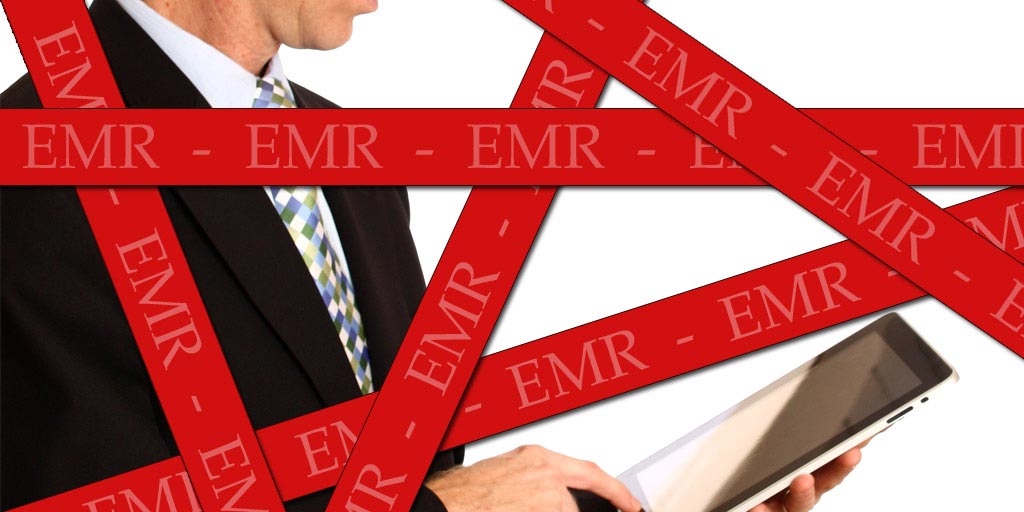I’ve got dozens of peculiarities with my personality. In fact, my wife might say that’s a conservative estimate.
I get frustrated when the collar of my polo shirt curls up in the humidity. I’m amazed that you can’t make a moisture-wicking white undershirt that doesn’t wrinkle, doesn’t fade to light gray with months of washing, and whose logo won’t show through a white dress shirt. If you find one of these, send me a message, and I’ll purchase a dozen.
I don’t buy the “off-brand” bottled water anymore, at least not the kind they sell at my local grocery store. Why? Does it taste different? Not to me. My taste buds are so bland, I probably wouldn’t know if I were drinking salt water. The reason is that 1 in 10 of the off-brand plastic bottles actually upsets me. The bottle upsets me, not the water. The wrapper just won’t stay glued to the plastic bottle long enough for me to finish drinking it. It starts to peal off, and yes, this bothers me. It’s just glue, and you ought to be able to get that right.
You see, my problem is one of two things. Either I’m borderline nuts, or if you read Jon Gordon’s best-selling book, The Carpenter, I’m in hopes that you’ll give me the benefit of the doubt and call me a craftsman. Hear me out, because there may be at least some truth to that. You see, when I do things or create things myself, in my own mind, I strive to be a craftsman. This doesn’t mean that what you get from me is perfect. No way. I fail, and I fail a lot. But, I try to fail forward. And, I strive to create things and be a part of things that deliver value.
This is why I get so frustrated dealing with Electronic Medical Records (EMRs) in medicine. These EMRs are what healthcare providers like myself have to deal with every day. All of them have been approved for use by the Centers for Medicare and Medicaid Services (CMS). In fact, they have been specifically designed to satisfy CMS’s rather ridiculous requirements for healthcare delivery, and this is one of the major reasons they are so terrible.
THE EMR DISASTER
Come follow me around tomorrow at either hospital where I work. We could film my day, upload it to YouTube, and watch the video go viral because this whole charade is rather comedic. It goes something like this.
There are a dozen computers on the hospital floor, but only three work well, so I circle the nurses’ station until one of them becomes available. We have the technology for highly-secure fingerprint recognition on our handheld phone, but, at the hospital, for whatever reason, I still login by typing two different passwords after swiping an identification badge.
I should absolutely never have to see the Windows desktop screen with multiple icons on it. There is only ONE medical record. That’s what should be on the screen when I get there. And, I should put my thumb print on the monitor and it should immediately show me all the patients that I’m following.
Instead, I login once. Then, login again. Sometimes again. Then, I wait for the hourglass to spin on the screen for a bit. Yes, the hospital’s computers aren’t state-of-the-art, but part of the reason that the system takes too long to load is because it’s bloated with unhelpful information. News flash: Most of the medical record is not helpful for patient care. It’s bloated for medical billing and essentially meaningless tracking of healthcare quality measures. All of this has been forced upon medicine by CMS, and trust me, it’s actually hampering some of the value that I provide you.
Once the hourglass quits spinning, I search for my patients among a poorly customizable list. I ultimately find the one that I’m looking for and open the chart. Inside the chart, I migrate through a plethora of inessential information until I find the “Medication Order” tab. I look for a medicine to prescribe, but it’s not there because the system fails to index the medication under its more appropriate generic name. I actually asked someone in the Ivory Tower to fix that problem last year, and evidently, they are still working on it.
Ultimately, I give up on ordering the medicine that I want, and concede to using a similar one that I can actually locate within the system. I select the dose of the medicine. Oddly, a second screen pops up asking me how I want to “compound” this medication before it is given. “Compounding” is what the pharmacist usually oversees. This just means mixing up the dose of the medication that I want and putting it into the appropriate delivery solution. Something like dissolving sugar crystals in a water bag. For reasons not entirely clear, I’m now involved with this compounding process. I guess the hospital has reduced its pharmacy staff, in hopes that I, the physician, will help with another additional task. And, why not? I have a fantastic electronic medical record that can do it all.
When I finally get through the pharmaceutical compounding screen, there are two more allergy override windows that require a fourth password and my reason for overriding all the error messages. I search for a drop-down box containing an entry for “Alert Fatigue” because this is the only truthful answer. In the end, I know my order goes through because pharmacy calls me to clarify the compounding process. In fact, they are actually having to redo everything.
I just can’t make this stuff up. I support computer-based systems, but we are still light-years away from having anything meaningful to show for ourselves in this game. I’ve worked with eight different EMRs in the last four years. None of them can even integrate with one another. It’s like you must have a different phone for every friend that you want to call.
I want you to realize that, for a physician, my understanding of computers and EMR systems is strong. I have computer programming knowledge and have built the websites for all five of the businesses in which I currently maintain at least minority ownership. I have hardcoded three mobile medical applications that you can download on two different operating systems. And, I will tell you, every EMR system that I have used over the last few years is embarrisingly suboptimal.
I’m not suggesting that the solution is to get rid of EMRs. We just desperately need to improve them. And, the best way to do it is to immediately get CMS away from regulating this game. Lighten the yoke for the software developers. Cut some of the “red tape” that CMS has wrapped around the EMR industry. If you got rid of CMS’s “meaningless use” requirements for EMRs, I bet two-thirds of the unnecessary clicks and checkboxes bogging down these systems would go away. People with real talent in application development would finally have some incentive to enter an otherwise painfully over-regulated market that lacks innovation. Let Google, IBM, or Apple, or a myriad of other value generating technology giants have a crack at it.
I’m essentially a one-man operation, and I got three requests in the last week alone to develop an EMR that makes sense. In fact, if you were to get CMS out of the equation, I’d actually consider doing it. But, here’s a better solution. What about those people headquartered in Mountain View or Cupertino, California? I’ve got a feeling that I’d enjoy working with them. Seems like a bunch of craftsmen are on the job there.
The irony is that medicine has craftsmen too. It’s just hard to see us through all the red tape.




